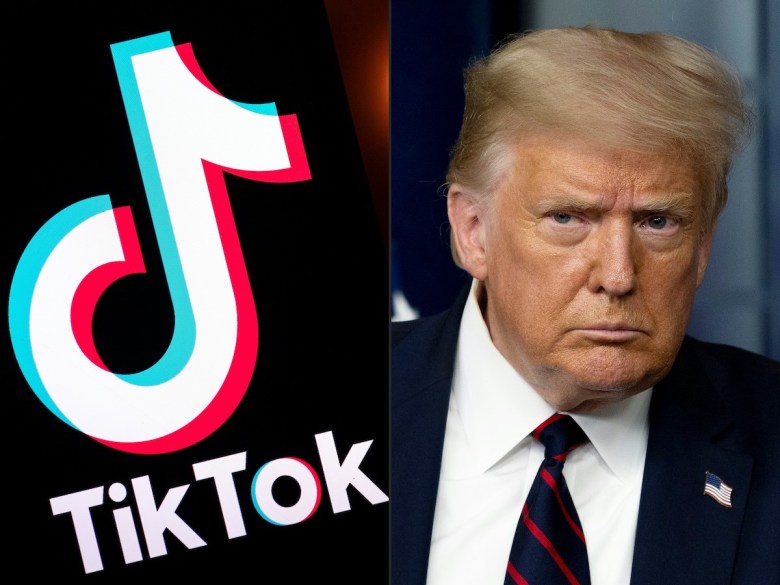Responding to the Biden administration’s request that China’s ByteDance sell its stake in TikTok for national security reasons, Beijing has complained that the United States is “suppressing” Chinese companies.
The Committee on Foreign Investment in the United States (CFIUS), an inter-agency committee of the US government, told ByteDance that if it doesn’t dispose of TikTok’s shares, then the use of the short-video app will be banned in the US.
“The US has so far failed to produce evidence to prove that TikTok threatens its national security,” Wang Wenbin, a Chinese foreign ministry spokesman said Thursday in a regular briefing. “The US should stop spreading false information on data security issues and unreasonably suppressing relevant companies.”
Wang said the US has generalized the concept of national security and abused its state power to suppress foreign firms. He also said the US should provide a business environment that is open, fair, just and non-discriminatory to companies from all over the world.
A TikTok spokesperson told media that the company has been contacted by CFIUS but it does not think that a change in ownership can ease American national security concerns if no new restrictions on data flows or access are imposed.
In 2020, then-US president Donald Trump issued executive orders to ban downloads of the TikTok app in the US. Trump had hoped to force ByteDance to sell its US TikTok operations but a plan for Oracles to buy the operations lapsed after President Joe Biden took office.
In June 2021, Biden ordered CFIUS to review the TikTok case. Negotiations between CFIUS and ByteDance failed to convince Washington that TikTok does not pose a national security risk to America.
Last month, House Foreign Affairs Committee Chair Michael McCaul introduced a bill, the Deterring America’s Technological Adversaries Act, which if passed and signed into law will allow the president to ban the use of TikTok nationwide.

By the end of last year, TikTok had more than 1 billion monthly active users globally. In the US, there are about 113.3 million active TikTok users.
Last month, the US and Canada ordered government organizations to remove TikTok from all official devices and systems. The European Commission also required all employees to delete the app from their work devices.
On Thursday, the United Kingdom also announced that it would ban TikTok from government phones due to security concerns. It said Tuesday it is now investigating the matter.
“We need to make sure our phones are not spyware,” UK Security Minister Tom Tugendhat said Tuesday. “Understanding the challenges these apps pose, what they are asking for and how they reach into our lives, is incredibly important.”
Tugendhat said he has asked the National Cyber Security Center to look into the TikTok app’s security issues.
Commenting on the UK’s investigation on TikTok, Wang said Wednesday that China had put forward its Global Initiative on Data Security in 2020 to call on countries to encourage companies to abide by laws and regulations of the state where they operate.
“Countries should not request domestic companies to store data generated and obtained overseas in their own territory,” said Wang. “They should respect the sovereignty, jurisdiction and governance of data of other states, and shall not obtain data located in other states through companies or individuals without other states’ permission. We always do what we say.”
However, TikTok is still accused by Western countries of handing users’ data to the Chinese government.
A Guangdong-based columnist says that if the US imposes a nationwide ban on TikTok, China will not be able to launch any countermeasures on US social media such as Facebook and YouTube as they have not entered mainland China.
He says if China launches countermeasures on other US businesses, it may violate the country’s opening-up policy. The columnist says the helplessness of such a passive position was seen in the past when China could not ban Apple’s iPhone in mainland China after the US banned Huawei’s products.
He says if TikTok is completely banned in the West, the company should turn to developing countries.

Alex Tsai, a former member of the Legislative Yuan in Taiwan and a member of the Kuomintang, says US politicians call for a nationwide ban of TikTok because they do not want the Chinese app to grow further, especially when internet giants such as Facebook, Google and Amazon are cutting their employee headcounts.
However, Tsai adds, Republicans and Democrats may have different views on the matter. He says Republicans do not like TikTok.
As evidence, he notes that former Trump failed to win reelection in November 2020 after he’d been mocked by young voters with some viral short videos. Tsai suggests that Democrats may not have as strong incentive to push the TikTok ban.
Read: Relentless censor Beijing mocks US TikTok crackdown
Follow Jeff Pao on Twitter at @jeffpao3

